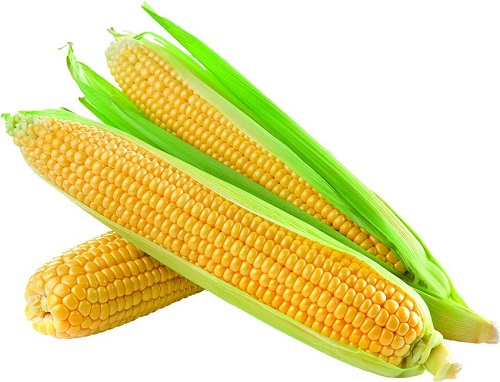
• Fresh corn
-Corn has soluble fibre for satisfaction and a healthy gut
One medium-sized ear of corn packs in about two grams of fibre. Corn contains fibre and insoluble fibre. It makes one feel full and satisfiedand promotes healthy gut bacteria.
Corn is a starchy vegetable, meaning it is naturally higher in carbohydrates than some other vegetables. The soluble fibre helps slow down the absorption of carbohydrates preventing spikes in blood sugar and keeping one from getting hungry again quickly.
-Corn is a source of plant protein
Adding corn to salads, pastas, rice and more is a sneaky way to up a dish’s protein content, especially if one is a vegetarian or vegan. Corn provides more protein than most other vegetables. Like fibre, protein helps keep hunger and cravings at bay and serves numerous essential functions in the body, including muscle repair and growth.
-Corn contains vision-protecting nutrients
Lutein and zeaxanthin give commonly found varieties of corn its yellow hue and constitute the main pigments found in the yellow spot of the human retina. Consuming these two carotenoids can help protect the eyes from blue light damage. It improves visual acuity, and even reduce the risk of age-related macular degeneration and cataracts.
-Corn provides potassium and magnesium
One serving of corn contains about six per cent of the daily potassium needs and nine to 12 per cent of daily magnesium needs. These minerals (both categorised as electrolytes) play a role in numerous different body processes. Potassium, to name a few, helps regulate hydration levels, send nerve signals, protect bones, and reduce blood pressure. Magnesium, too, is involved in nerve function and regulation, managing blood pressure, and reducing the risk of stroke and ischemic heart disease.
-Corn contains vitamins C and B.
Whether you consider corn a vegetable or a whole grain, it provides vitamins and minerals to the body. One cup of sweet yellow corn contains 17 per cent of the daily value of vitamin C, an antioxidant that supports your immune system, collagen production, and iron absorption.
It also offers about 24 per cent of the daily value of thiamine and 19 per cent of the daily value of folate—both are B vitamins that help convert carbohydrates into energy.
Folate is especially important to consume during pregnancy to ensure normal foetal development and prevent certain birth defects.
Source: www.realsimple.com
